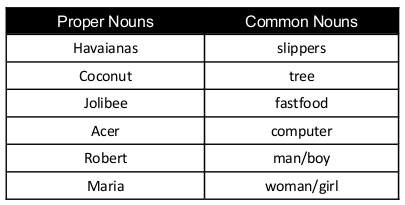The key difference between noun and subject is that a noun refers to a person, place, object, or situation, while a subject identifies any person or a thing that is being discussed in a sentence. Nouns and subjects are two very important parts of speech in English grammar. A subject of a sentence can be a noun or a pronoun, and it is possible to get an idea of the sentence by looking at the subject. Various types of nouns can be used in sentences, for example, common nouns, proper nouns, collective nouns, etc.
Key Takeaways
- A noun is a word that identifies a person, place, action, object, substance, quality, quantity, or situation.
- A subject is the first and main part of a sentence, conveying who or what the sentence is about.
- The key difference between noun and subject is that a noun refers to a person, place, object, or situation, while a subject identifies any person or a thing that is being discussed in a sentence.
What is a Noun?
A noun is a word that identifies a person, living being, place, action, object, substance, quality, quantity, or situation. They are a very important segment of speech in English grammar. They cannot be categorized according to their meanings. A noun in a sentence in English works as the head of a noun phrase, and it can appear with articles and attributive adjectives. There are different types of nouns. Some of these categories are as described below.
Common Nouns
Most nouns belong to this category. They refer to places, people, and things in general. (Eg: animal, country, dog, cat)
Proper Nouns
Proper nouns recognize a particular person, thing or place. We always write the first letter of a proper in capital letters. (Eg. Japan, Colombo, Maria, Sunday)
Concrete Nouns
These refer to nouns that can be heard, smelled, touched or seen. These nouns exist physically. (Eg.tea, coffee, sea)
Abstract Nouns
Abstract nouns refer to nouns that cannot be heard, touched, or seen. These do not exist physically. (Eg. happiness, sadness, friendship)
Collective Nouns
These type of nouns refer to a group of things or people. (Eg. team, family, herd)
Count and Mass Nouns
These nouns can be either counted (count nouns- Eg. dog, rat, bat) or cannot be counted (mass nouns –Eg. money, sugar)
What is a Subject?
Every sentence has one main subject, and it is used at the beginning of a sentence. It is the subject of the main verb. It controls the verb in the sentence. It conveys who or what the sentence is about. The subject of a sentence is almost always followed by a predicate, and it contains a verb clause. Moreover, it is important to remember that the subject of a sentence is often a noun or sometimes a pronoun.
There are three main categories of subject.
Simple Subject
A subject without modifiers. (Eg. John went to school)
Complete Subject
“This girl” is the complete subject (Eg. This girl sang a song)
Compound Subject
Here, the subject consists of more than one word. (Eg. David and Edward went to the playground)
What is the Difference Between Noun and Subject?
Both a noun and a subject are parts of speech. However, the key difference between noun and subject is that a noun names words and usually refers to a person, animal, place or thing, while a subject is the first and the main part of a sentence. A sentence is based on a subject. A subject can also be a pronoun and can contain more than one word.
Summary – Noun vs Subject
A noun is a reference to a place, living being, or object. Different types of nouns can be used in a sentence based on their various features. A sentence generally starts from a subject. The subject represents who or what the sentence is about. Moreover, it is possible to get an idea of the sentence by looking at the subject of the sentence. Thus, this is the key difference between noun and subject. Both subjects and nouns act as building blocks of a sentence.
